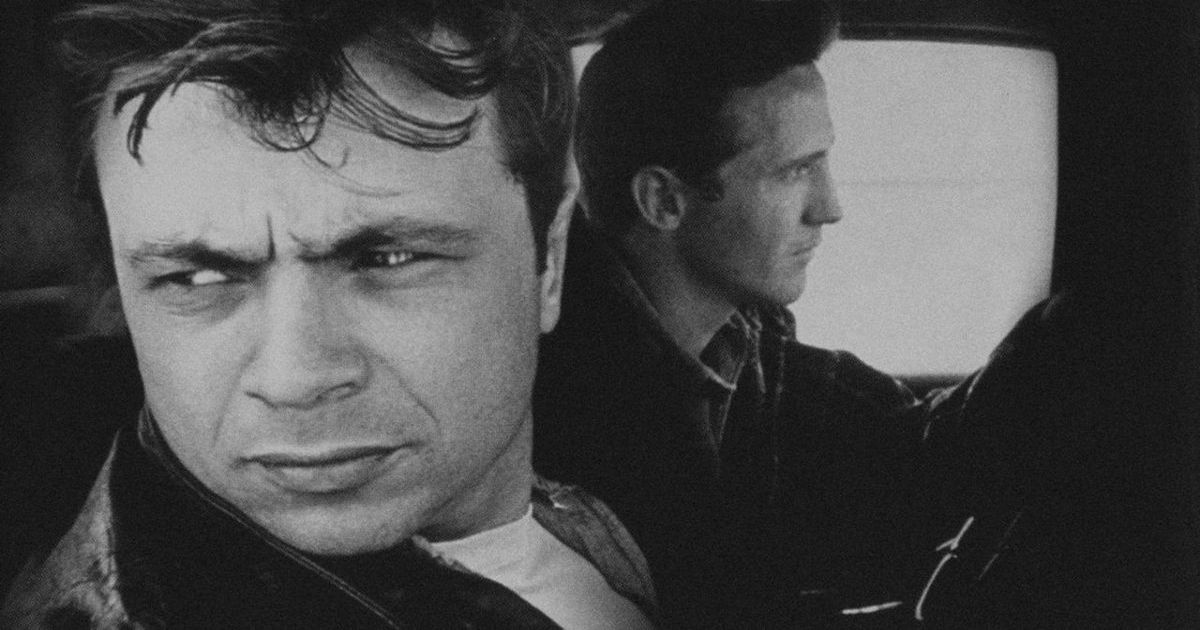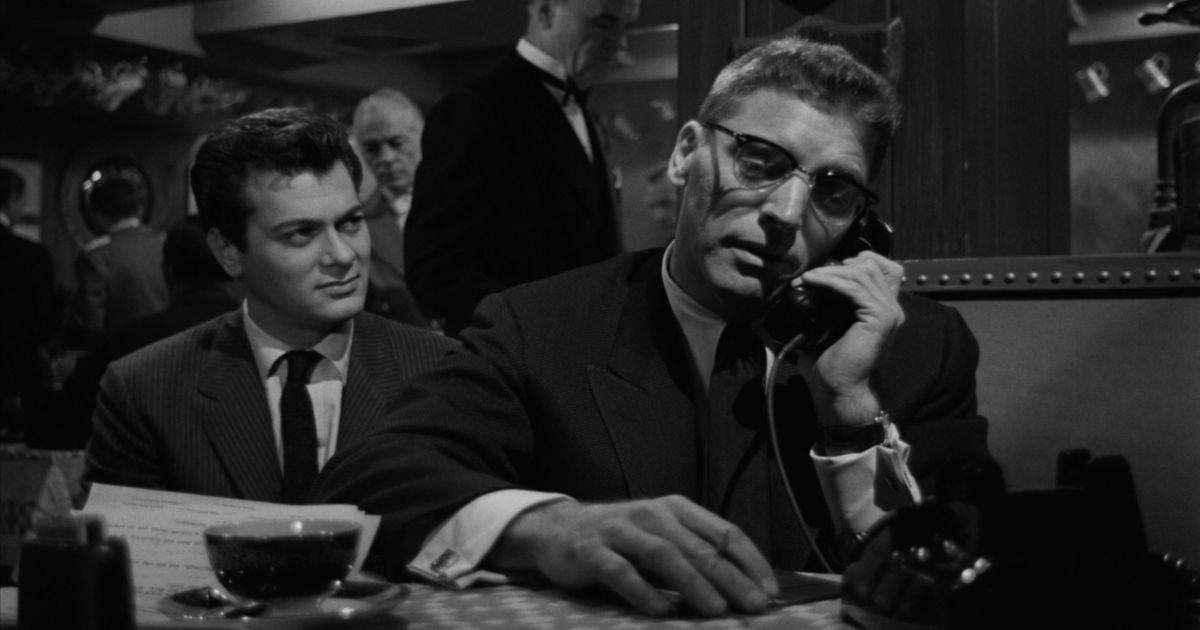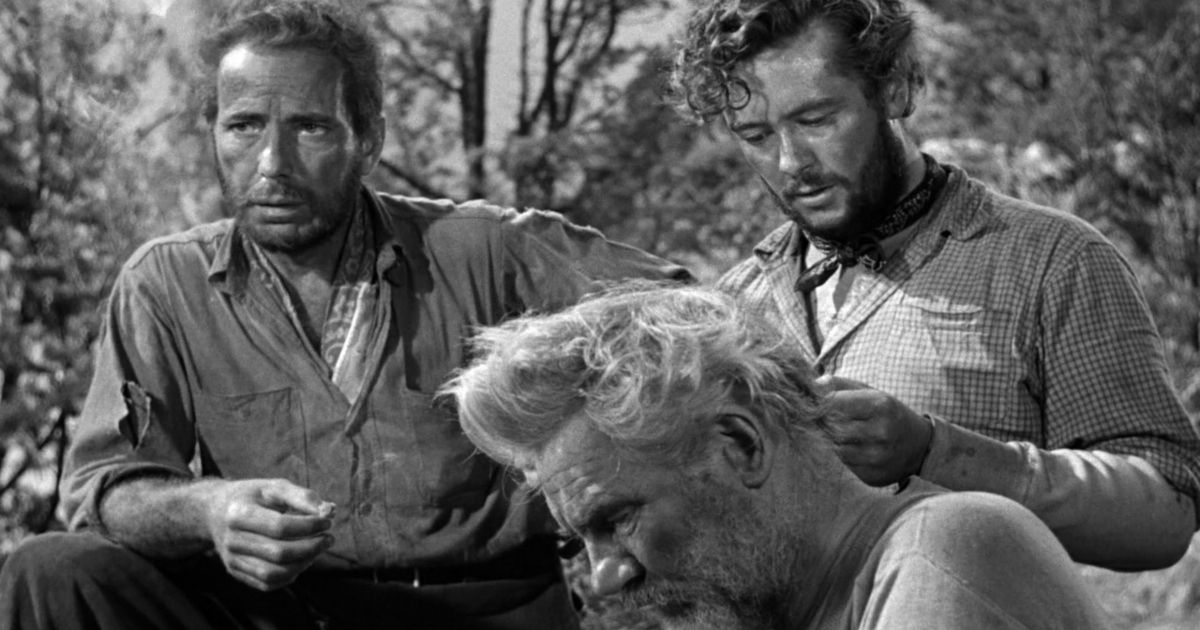Classic films are often associated with a certain innocence. Many think they were made in a time of heavy censorship, with melodramatic stories exclusively about virtuous heroes that couldn't match the grit and realism of modern films. While there is some truth to the censorship and melodrama in these older films, The core of this concern is based on ignorance.
There is a wealth of exceptional classic films that paved the way for all the films that followed, with many of them containing the heavy themes and ideas that we celebrated the more modern films for having. Movies about violence, immorality, mental illness, and other mature topics with imperfect people as the focus abounded and inspired the filmmaker that would come after. Here are ten classic films about misguided men that prove that mature, powerful films have been present since the earliest days of the medium.
Monsieur Verdoux (1947)
Charles Chaplin is famous for his exceptional work in comedy cinema, particularly during the silent era. While always hilarious, he would often mix more meaningful messages into his films that reached for something greater, something that only deepened when he was eventually able to use sound. One of his most unique films was Monsieur Verdoux, a sympathetic story of a desperate man who turns to murder to provide for his family.
The film has many of the moments you would see in a Chaplin film, with his trademark physical comedy and clever coincidences that make for humorous misunderstandings. What's different is Chaplin's Verdoux, a murderer who doesn't come off as a bad person despite his trade. Chaplin uses this interesting man to make a point about how desperation drives men to evil in order to survive, even making a connection to the great depression and the rise of fascism. He's made Verdoux someone we sympathize with and root for until the end, when he is inevitably caught. Suddenly, we come to accept with him that what he was doing was wrong and punishment should follow, yet he isn't entirely to blame. It's a funny yet thought-provoking film that still feels special today.
Pickup on South Street (1953)
It takes a special eye to see virtue where most would see none. As one of the fathers of independent cinema who often worked outside the studio system, Samuel Fuller always had a unique perspective as an outsider that helped him make sense of those typically regarded as lesser people. One of his greatest works, Pickup on South Street, is a pulpy poem about criminals that save the day.
The story is a perfect noir premise of a pickpocket who unknowingly steals a roll of micro-film meant for a communist agent and the consequences that follow. The pickpocket, Skip McCoy, is played brilliantly by Richard Widmark who gives a believable street-wise tough guy that has become disenchanted by the American dream after so much bad luck. He's far from a hero and knows it, looking for any way to get ahead regardless of whose offering. We hope he'll do the right thing, but we understand why he wouldn't after being mistreated by the world for so long. He never makes the right choice as much as he is forced to by the circumstances, but he always makes sense. It's a special kind of film with a unique understanding of a man that most would consider evil, but Fuller sees a man that can be understood.
A Face in the Crowd (1957)
There are rare moments when an artist is so in tune with the zeitgeist that they make something prophetic. Elia Kazan's A Face in the Crowd is a shocking film that was meant to be an examination of the media's influence at the time it was made but feels frighteningly relevant today. The film is about a radio reporter who discovers a lonely drifter in Arkansas and makes him a superstar of both radio and television.
The normally wholesome Andy Griffith plays that drifter and is so charming at first, making the movie seems like an innocent rags-to-riches story starring an all-American hero. As the story progresses, it becomes increasingly clear that Griffith's character is far from innocent, as he uses his growing influence to manipulate the population for his selfish gains. The once all-American hero is revealed to be a womanizing drunk who realized the power of media and how that could benefit him. It's a ceaselessly captivating film that warned of today's media obsession and the terrible results of that obsession.
In Cold Blood (1967)
True-crime stories offer a unique kind of experience. They're bleak tales that feel like a twisted horror movie with an added level of terror from knowing it actually happened. One of the greatest true-crime stories is Richard Brooks' In Cold Blood, a true story adapted from the celebrated novel by Truman Capote. It shows in stark realism the events surrounding the murder of an innocent Kansas family, following the two men who brought it about.
The movie still stands as a seminal work of crime cinema for how the filmmakers sought absolute authenticity, even shooting at the same locations the crime took place and using the family photos of the victims for the set. What sets it apart from other stories of this type is the humanity that everyone is given within the film. The family is pure and innocent, which makes their deaths all the more tragic, but the killers are also given immense detail to their characters.
Their crime is never justified by the movie, but they are not shown as monsters, but as human beings that did something terrible. The film follows them for most of its runtime and gives us a clear view of their perspective, especially the Perry Smith character. By the end of the story, we feel sorry for everyone and feel sad to see all of them die. It's a powerful film that still works beautifully today as a tragic story of human beings who suffer for petty reasons.
Sweet Smell of Success (1957)
Some films test an audience's faith in humanity when they depict particularly loathsome characters. Alexander Mackendrick's Sweet Smell of Success shows two of the slimiest men ever to grace the silver screen, and it makes for an excellent film. The story is about two Broadway gossip columnists who scheme to ruin the budding romance of a jazz musician and a beloved sister.
The two cold-hearted newspapermen are played by the ever-brilliant Burt Lancaster and Tony Curtis, who give the roles a snakelike quality as they work together for their own selfish wants. Neither man likes the other, but they understand one another and use each other to get what they want. The whip-smart dialogue combined with the cynical nature of the film makes it a captivating viewing experience that still has the same power to disgust those who watch it.
The Treasure of the Sierra Madre (1948)
A classic story often told in many forms is the cautionary tale of greed's destructive power, and John Huston's The Treasure of the Sierra Madre is one of the greatest iterations of that story. The legendary film follows two down-on-their-luck drifters wandering Mexico in the hope of finding something to change their fortune, and they find it in an old prospector who tells stories of gold in the Sierra Madre Mountains.
The expedition is fraught with the dangers of rattlesnakes and bandits, but the greatest threat is the men's own greed and paranoia. Humphrey Bogart's character is especially anxious throughout the film and only gets worse as the gold accumulates and his greed becomes insatiable. It's clear to see how this celebrated classic has inspired so many great filmmakers, a notable fan being Paul Thomas Anderson, who said this film was a major inspiration for There Will Be Blood. It's a must-watch film that's gripping from beginning to end, with one of the most perfect conclusions in cinema.
Cape Fear (1962)
Few films are quite as terrifying as J. Lee Thompson's Cape Fear. The paranoid thriller is about the torment a lawyer and his family are put through by a man he helped put in prison eight years earlier for rape. The powerhouse performances from Gregory Peck as the virtuous lawyer Sam Bowden and Robert Mitchum as the villainous Max Cady makes for an incredible film that goes beyond what most thrillers of the time were able to accomplish.
Cady's torment of Bowden makes him more and more desperate, bringing him closer to Cady's level with each failed attempt to stop him the lawful way. This all culminates in a climax that rivals the tensest thrillers of today, with the two men in a desperate battle for life and death on the muddy shores of a river during a storm. It was remade in 1991 by the great Martin Scorsese with many smart changes to make the characters more captivating, but the original still stands as an equal to it with its brilliant filmmaking and tense story.
Ace in the Hole (1951)
Men's ambition at times can get in the way of their doing the right thing, and they often realize this when it's too late. That's what happens in Hollywood Legend Billy Wilder's Ace in the Hole, the story of a seedy but ambitious newspaperman so hungry for a big story that he put another man's life in jeopardy for it. Kirk Douglas is perfectly cast in the role of the smart-talking reporter out for only himself, as he uses his irresistible charm to get his way and craft his major story, much to the audience's interest and disgust.
The audience knows this guy is bad news from the moment he appears on the screen, as he makes it clear who he is and what he's about. The film was considered so cynical on its release that it was a box office failure, but it is now celebrated for the masterpiece that it is.
Il Bidone (1955)
Cinema Maestro Federico Fellini has a wonderful body of work that is mostly defined by flawed men struggling with their own immorality yet little attention is given to his underrated gem Il Bidone. Translated to English as The Swindle, the film follows three con men who take advantage of the desperate for their own gain by impersonating priests and asking for church donations.
The men appear to have no remorse for this action and revel in their selfish desires, but after one man has their consciousness awoken by their loving wife, the ring leader of the cons begins to doubt their methods. It makes for a classic Fellini film full of humanity and hope, with an ending that may be his most tragic.
Hud (1963)
Considered by Paul Schrader to be the father of all flawed character films, Martin Ritt's Hud is one of the greatest films about a troubled man who acts immorally. Paul Newman plays the title character and gives him all the depth he needs as a complicated loner who does as he pleases, never considering anyone but himself. He's a hero to his Nephew and a curse to his father, with the whole town seeing him only as a mean drunk that steals men's wives.
The emotional journey of the film is unique as the audience goes from curiosity to charmed, to sympathy, to sad disgust. Newman conveys all the depth of this man in his performance, which makes for one of the best-realized characters in cinema. An incredible film that deserves more praise for the many great films it paved the way for.






.jpg)



Comments
Post a Comment